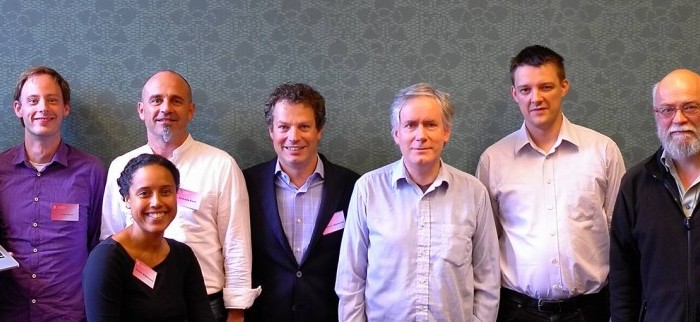
The election of the new MC for the period 2016-2018 will be open on 15 September and close on 21 September 2016 at 6PM (CEST time). Results will be announced at the Social Simulation Conference 2016.
All ESSA members who will be eligible for voting will receive an email with instructions on 15 September.
Here is the list of candidates for the election of the new ESSA Management Committee, which will be in charge from September 2016 to September 2018
President
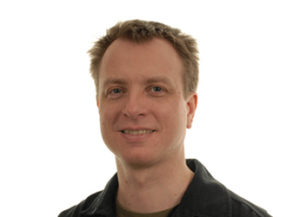 Gary Polhill did a degree in Artificial Intelligence and a PhD in Neural Networks before spending 18 months in industry as a professional programmer. Since 1997 he has been working at the Institute on agent-based modelling of human-natural systems. His field of research is agent-based modelling of socio-ecological systems and rigorous approaches to their design and interpretation. He has an outstanding publication score, including frequently cited articles published in Ecological modelling, Environmental modelling & software, Landscape Ecology and JASSS. He has participated to many ESSA conferences and taught at the Sixth ESSA Summer School in Wageningen, September 2015.
Gary Polhill did a degree in Artificial Intelligence and a PhD in Neural Networks before spending 18 months in industry as a professional programmer. Since 1997 he has been working at the Institute on agent-based modelling of human-natural systems. His field of research is agent-based modelling of socio-ecological systems and rigorous approaches to their design and interpretation. He has an outstanding publication score, including frequently cited articles published in Ecological modelling, Environmental modelling & software, Landscape Ecology and JASSS. He has participated to many ESSA conferences and taught at the Sixth ESSA Summer School in Wageningen, September 2015.
The purpose of his first mandate is to bring new ideas in the association that help social simulation community to increase its impact and recognition both in the academia and in the public and private sector, using his expertise in both worlds.
Email: Gary.Polhill@hutton.ac.uk
Secretary
 Armando Geller is a co-founder of and partner at Scensei, an analytics and decision support boutique; BidElastic, a large-scale data mining, and simulation and optimization software development enterprise; positif.ly, a humanospherics venture; and trovero, a discovery, mapping and micro targeting tool for the social media. Previously, he worked as a historian, political scientist and computational social scientist in academia, government and private industry. He develops participatory tools and instruments for individual and small group data elicitation; creates applied multiagent models in security, development cooperation and industry; and uses modeling and simulation for stakeholder integrating decision support and policy design. He innovates, devises and leads complexity and multiagent inspired, cross-disciplinary research and applied projects for a broad range of popular as well as unconventional contexts. Armando is the current Secretary of ESSA and stands for reelection.
Armando Geller is a co-founder of and partner at Scensei, an analytics and decision support boutique; BidElastic, a large-scale data mining, and simulation and optimization software development enterprise; positif.ly, a humanospherics venture; and trovero, a discovery, mapping and micro targeting tool for the social media. Previously, he worked as a historian, political scientist and computational social scientist in academia, government and private industry. He develops participatory tools and instruments for individual and small group data elicitation; creates applied multiagent models in security, development cooperation and industry; and uses modeling and simulation for stakeholder integrating decision support and policy design. He innovates, devises and leads complexity and multiagent inspired, cross-disciplinary research and applied projects for a broad range of popular as well as unconventional contexts. Armando is the current Secretary of ESSA and stands for reelection.
His objective for his next term as the Secretary, should he then be confirmed in office again, is to finalize the legal reform of ESSA he initiated.
Email: armando.geller@me.com
Treasurer
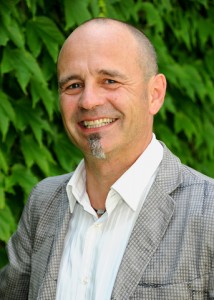 Andreas Koch is Professor of Social Geography at University of Salzburg, Austria. He succeeded Michael Moehring as treasurer of ESSA since 2014. His field of research is geosimulation and the application of social simulation models in spatial contexts. He has hosted the 8th ESSA Conference in Salzburg in 2012. He is Vice President of ifz – International Research Center for Social and Ethical Issues at University of Salzburg and review editor of JASSS.
Andreas Koch is Professor of Social Geography at University of Salzburg, Austria. He succeeded Michael Moehring as treasurer of ESSA since 2014. His field of research is geosimulation and the application of social simulation models in spatial contexts. He has hosted the 8th ESSA Conference in Salzburg in 2012. He is Vice President of ifz – International Research Center for Social and Ethical Issues at University of Salzburg and review editor of JASSS.
His purpose for the next mandate is to manage the financial running of the association in close cooperation with the President, the Secretary and all members of the MC to guarantee a sustainable development of the association.
Email: andreas.koch@sbg.ac.at
Management committee members
Petra Ahrweiler is the Director of the European Academy of Technology and Innovation Assessment, in Germany and holds a professorship for Technology and Innovation Assessment at the Johannes Gutenberg University Mainz in Germany. Her main research interests are innovation networks in knowledge-intensive sectors, responsible research and innovation, and policy modelling for complex social systems . She has been involved in many EU projects and has published articles in Scientometrics, Journal of Product Innovation Management, JASIST and JASSS. She has been elected for the first time MC member of ESSA in 2014 and would be at her second mandate.
Her purpose for the next mandate is to define strategies to improve the use of social simulation in policy domains and help to connect social simulation to public and private stakeholders.
Email: petra.ahrweiler@ea-aw.de
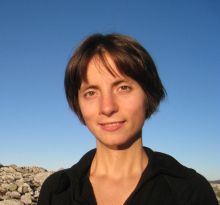 Melania Borit is post-doc fellow at the Artic University of Norway, where she coordinates an EU project on “Social science aspects of fisheries for the 21st century”. Her research field is environmental waste management and risk communication, which she looks in a social simulation perspective. She is leading leading two ESSA SIGs (Using qualitative data to inform behavioral rules; Social simulation and serious games) and has published articles in Journal of Cleaner Production, Food Science & Technology and Marine Policy.
Melania Borit is post-doc fellow at the Artic University of Norway, where she coordinates an EU project on “Social science aspects of fisheries for the 21st century”. Her research field is environmental waste management and risk communication, which she looks in a social simulation perspective. She is leading leading two ESSA SIGs (Using qualitative data to inform behavioral rules; Social simulation and serious games) and has published articles in Journal of Cleaner Production, Food Science & Technology and Marine Policy.
The purpose of her first mandate is to revitalise the ESSA newsletter as Newsletter editor and improve internal communication between ESSA members.
Email: melania.borit@uit.no
Emile Chappin is Assistant Professor at the Energy and Industry Group of the department Technology Policy and Management of Delft University of Technology and a senior research fellow at the Wuppertal Institute for Climate, Energy and Environment. His research interests are simulation modeling, in particular agent-based modeling, serious gaming, data analysis, transition management, and life cycle analysis. He has published articles on the use of social simulation models to inform energy policy in Energy Policy, Technological Forecasting & Social Change and JASSS. He has been elected for the first time MC member of ESSA in 2014 and would be at his second mandate.
His purpose for the next mandate is to define strategies to improve the use of social simulation for educational purposes in a variety of domains, e.g., schools and policy.
Email: E.J.L.Chappin@tudelft.nl
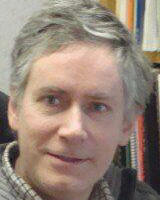 Bruce Edmonds is Director of the Centre for Policy Modelling at the Manchester Metropolitan University Business School, which has focused on complexity science and social simulation since 1992. Long standing member of the ESSA MC, one of the most influential social simulation scholars worldwide, he has published articles in American Journal of Sociology, JASSS, CMOT and Journal of Mathematical Sociology. He has chaired the 6th ESSA Conference in Guilford, UK in 2009 and taught in many ESSA Summer Schools. He has been ESSA SIG coordinator.
Bruce Edmonds is Director of the Centre for Policy Modelling at the Manchester Metropolitan University Business School, which has focused on complexity science and social simulation since 1992. Long standing member of the ESSA MC, one of the most influential social simulation scholars worldwide, he has published articles in American Journal of Sociology, JASSS, CMOT and Journal of Mathematical Sociology. He has chaired the 6th ESSA Conference in Guilford, UK in 2009 and taught in many ESSA Summer Schools. He has been ESSA SIG coordinator.
His purpose for the next mandate is to continue to coordinate ESSA SIGs and stimulate collaboration between ESSA members beyond regular annual meetings.
Email: bruce@EDMONDS.NAME
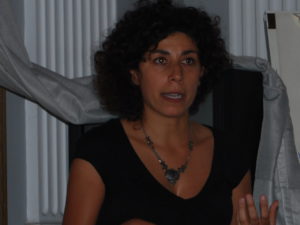 Francesca Giardini is Assistant Professor in sociology at the Department of Sociology/ICS, Groningen, NL. Her research focuses on the mechanisms supporting prosocial behavior and she is especially interested in understanding how reputation can be used as a tool for governance in different organizational and institutional settings. She obtained her PhD in Cognitive Science from the University of Siena in 2006 and was a post-doc at the Institute of Cognitive Sciences and Technologies (ISTC-CNR) in Rome, working with Rosaria Conte. She contributed to the organisation of SSC2016.
Francesca Giardini is Assistant Professor in sociology at the Department of Sociology/ICS, Groningen, NL. Her research focuses on the mechanisms supporting prosocial behavior and she is especially interested in understanding how reputation can be used as a tool for governance in different organizational and institutional settings. She obtained her PhD in Cognitive Science from the University of Siena in 2006 and was a post-doc at the Institute of Cognitive Sciences and Technologies (ISTC-CNR) in Rome, working with Rosaria Conte. She contributed to the organisation of SSC2016.
Her purpose for her first mandate is to help ESSA collaborating with other associations more effectively and promote interdisciplinary research by young scholars.
Email: f.giardini@rug.nl
Nick Gotts has been an independent writer and researcher since he left full-time employment as a researcher at the James Hutton Institute, where he modelled social and socio-environmental systems using agent-based simulation. His interests also include the nature of complexity, and the application of agent-based simulation to historical questions. He has published in a wide range of journals, including JASSS, Environmental Modelling & Software, Ecology and Society, Landscape Ecology, Advances in Complex Systems, and Artificial Life. He is a long standing member of the ESSA MC and led the committee for the ESSA Distinguished Dissertation Award.
His purposes for the next mandate are to continue to promote outstanding research in social simulation by young scholars and provide editorial assistance to the committee on documents that need to be produced in English
Email: ngotts@gn.apc.org
Bogumił Kamiński is Head of Decision Analysis and Support unit at Warsaw School of Economics. His research interests focus on applications of agent-based modeling, especially in economics and development of methods for analysis of simulation experiments results. He currently also serves in INFORMS Membership Committee and thus can work as a link between traditional operations research and social simulation communities. He has published articles in particular in Simulation Modeling and Practice and Theory, European Journal of Operational Research, Annals of Operations Research and Operations Research Letters. He has been elected for the first time MC member of ESSA in 2014.
His purpose for his second mandate is to support the organisation of SSC conferences and promote formal methods of design and analysis of simulation experiments in agent-based modeling community.
Email: bogumil.kaminski@sgh.waw.pl
 Diane Payne is Associate Professor at the School of Sociology and the Director of the Dynamics Lab at the University College Dublin in Ireland. She spent several years as a doctoral research fellow at the Interuniversity Centre for Social Science Theory and Methodology (ICS) at the University of Groningen in the Netherlands. Following this, she worked as a researcher at the University of Cambridge in England. Her main research interests are behavioural models of group processes and collective decision making.
Diane Payne is Associate Professor at the School of Sociology and the Director of the Dynamics Lab at the University College Dublin in Ireland. She spent several years as a doctoral research fellow at the Interuniversity Centre for Social Science Theory and Methodology (ICS) at the University of Groningen in the Netherlands. Following this, she worked as a researcher at the University of Cambridge in England. Her main research interests are behavioural models of group processes and collective decision making.
Her purpose for her first mandate is to help ESSA improving its focus on teaching and learning.
Email: diane.payne@ucd.ie
Alex Smajgl is the Managing Director of the Bangkok-based Mekong Futures Research Institute. His background is in environmental economics with a focus on agent-based social simulation in the context of poverty-environment interactions, urbanisation and climate change adaptation. His work has a strong empirical focus and aims to develop solutions for some of the most critical empirical challenges agent-based modelling faces. He also designs and implements participatory processes with various Governments across the Asia-Pacific region to establish effective science-policy interfaces for development policy.
His purpose for the next mandate is to help the new President and the MC to forge closer ties between European and International research networks to improve the international recognition of the association.
Email: alex.smajgl@merfi.org
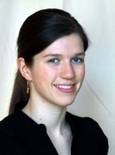 Geeske Scholz is a post-doc fellow at the Institute of Environmental Systems Research at Osnabrueck University, Germany. Her research interests are social learning and social change, and how modelling, specifically computer simulations, can help us to understand and facilitate these phenomena. She is particularly interested in modelling group interaction and agreement formation. She was one of the organisers of ESSA@work at SSC2015 and 2016.
Geeske Scholz is a post-doc fellow at the Institute of Environmental Systems Research at Osnabrueck University, Germany. Her research interests are social learning and social change, and how modelling, specifically computer simulations, can help us to understand and facilitate these phenomena. She is particularly interested in modelling group interaction and agreement formation. She was one of the organisers of ESSA@work at SSC2015 and 2016.
Her purpose for her first mandate is to manage ESSA@work initiatives and promote more active and engaging communication and collaboration formats at Social Simulation Conferences.
Email: geeske.scholz@uni-osnabrueck.de
 Flaminio Squazzoni is Associate Professor of Economic Sociology at the University of Brescia, Italy, where he leads the GECS-Research Group on Experimental and Computational Sociology. He is editor of JASSS. His field of research is agent-based computational sociology. He published articles in Social Networks, PLoS ONE, Research Policy and JASSS. He has been President of ESSA from September 2012 to September 2016. He has hosted the 5th ESSA Conference in 2008 and the First ESSA Summer School in Social Simulation 2010 in Brescia, Italy.
Flaminio Squazzoni is Associate Professor of Economic Sociology at the University of Brescia, Italy, where he leads the GECS-Research Group on Experimental and Computational Sociology. He is editor of JASSS. His field of research is agent-based computational sociology. He published articles in Social Networks, PLoS ONE, Research Policy and JASSS. He has been President of ESSA from September 2012 to September 2016. He has hosted the 5th ESSA Conference in 2008 and the First ESSA Summer School in Social Simulation 2010 in Brescia, Italy.
His purpose for the next mandate is to support the new President by sharing experiences cumulated in the last four years.
Email: flaminio.squazzoni@unibs.it
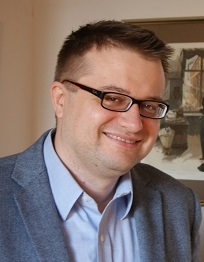 Przemyslaw Szufel is an assistant professor in Decision Analysis and Support unit at Warsaw School of Economics. In his research he combines applications with practical tools for simulation execution. He specializes in agent-based simulation of economic systems and tools for cost efficient simulation execution in the public cloud. He has published articles on simulation modelling in Simulation Modeling and Practice and Theory, Winter Simulation Conference Proceedings, Group Decision and Negotiation INFORMS Journal. He was a member of ESSA 2013 organizing committee and an organizing chair of GDN 2015 INFORMS conference.
Przemyslaw Szufel is an assistant professor in Decision Analysis and Support unit at Warsaw School of Economics. In his research he combines applications with practical tools for simulation execution. He specializes in agent-based simulation of economic systems and tools for cost efficient simulation execution in the public cloud. He has published articles on simulation modelling in Simulation Modeling and Practice and Theory, Winter Simulation Conference Proceedings, Group Decision and Negotiation INFORMS Journal. He was a member of ESSA 2013 organizing committee and an organizing chair of GDN 2015 INFORMS conference.
His purpose for the first mandate is to support SSC organisation and promote tools and approaches for cost-efficient execution of large scale social simulations in the cloud.
Email: pszufe@gmail.com
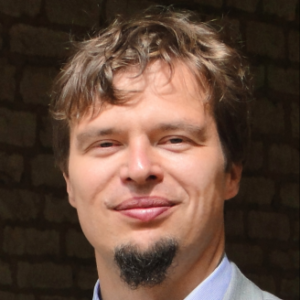 Wybo Wiersma has a MSc in Social Science of the Internet, a MA in Digital Humanities and 3 BAs (firsts/cum laude) in History, Philosophy of Information Science and Information Science. He is currently PhD Student in Sociology at the Oxford Internet Institute, UK. His research looks at online social behaviour and especially at how social media affect protest movements. He has been one of the organisers of the (largely spontaneous and self-organised) first PhD Colloquium at Social Simulation Conference 2016 in Rome, Italy.
Wybo Wiersma has a MSc in Social Science of the Internet, a MA in Digital Humanities and 3 BAs (firsts/cum laude) in History, Philosophy of Information Science and Information Science. He is currently PhD Student in Sociology at the Oxford Internet Institute, UK. His research looks at online social behaviour and especially at how social media affect protest movements. He has been one of the organisers of the (largely spontaneous and self-organised) first PhD Colloquium at Social Simulation Conference 2016 in Rome, Italy.
The purpose of his first mandate is to represent the voice of the large group of PhD students who are involved in the association and identify strategies and instruments to make ESSA even more attractive for young scholars.
Email: wybo.wiersma@oii.ox.ac.uk